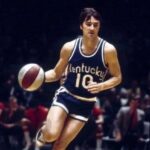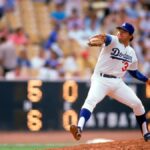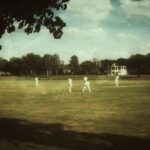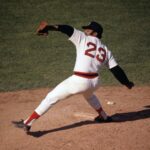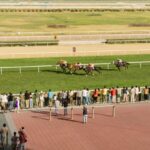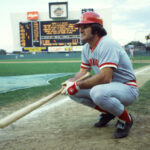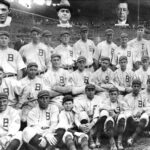Muhammad Ali – The Most Influential Sportsmen Ever
With sport of all kinds having made the transition from amateur to professional status, it is always worth remembering that one unique sportsmen who added unforgettable memories, great depth of character and unadulterated self belief, over a professional boxing career that spanned 21 years . His name of course is Muhammad Ali.
Without any doubt whatsoever, Muhammad Ali became the most famous sportsmen of all time. He was the first man to win the World Heavyweight Boxing champion three times, with two of those titles coming after he was stripped of his boxing license in his prime for 3½ years for refusing to fight in Vietnam.
His antics before and after fights were often a joy to behold, his self promotions, his poetry, his philosophy and his humour were aspects never associated with sportsmen of any kind until he arrived on the scene.
Add these aspects to a boxing style that was graceful, very fast in his early days, intelligent in his later days and ruthless on any given day, Ali established himself quickly as a major box office hero and quite simply was never out of the news. In his absolute heyday, he was unquestionably the most famous man in the world, even more famous than John Lennon, the man who claimed that the Beatles were more famous than Jesus.
Ali was known on all five major continents, fighting in four of them, two of which the ‘Rumble in the Jungle’ in Zaire against the unbeaten knock out specialist George Foreman in 1974 and the final bout in the Ali/Joe Frazier trilogy, known as the ‘Thriller in Manila’ in 1976 both broke world television viewing records. Ali of course won both of those fights with stoppages which gave him hero status throughout Africa and the Far East and also confirmed him in the eyes of many as the greatest heavyweight boxer of all time.
Ironically, Ali, even in his pre-Muslim days regarded himself as the “Greatest” it was the way he loved to describe himself to the media before any of his professional fights. His “I am the greatest” rants in the early days cost him some support, but after he stopped Sonny Liston, known as the ‘Big Bear’ and regarded as one of the most fearsome heavyweights of all time, after six rounds to win his first world crown, even the sceptics began to believe. Ali predicted the outcome of the fight in which he said that he would “Float Like a Butterfly and Sting Like a Bee” which is exactly what he did and he never allowed the media ‘off the hook again’.
Ignoring the theatre which of course always was part of the Ali make-up, he was also an incredibly brave individual, who put his body on the line quite obviously for far too long. Although he often believed that he could not get hit in the ring, it was obvious that as he got older or perhaps too over confident, he would do.
Certainly Britain’s Henry Cooper proved that he was fallible, knocking him down and very nearly out in their first bout in 1963. Joe Frazier was the next to put him on his backside, which he did in the 15th and final round of their first meeting known as the ‘Fight of the Century’. It was Ali’s third fight after his enforced 3½ year boxing ban and Frazier held the title and like Ali was unbeaten. It was to be Ali’s first defeat as although he got up from the knock down, it became clear that he no longer possessed the speed that he was famed for and thus lost the fight by a unanimous point’s decision.
After that fight, Frazier quipped that the shots that he hit Ali with would normally knock down buildings proving that he held Ali’s durability in very high esteem. He was to hit Ali and few hundred more times in their next two fights which if added to those he took in his later fights were in many ways responsible for the onset of Parkinson’s Disease from which Ali suffers severely from to this day.
To see a young man so full of confidence, poetry, sagacity and zest, it becomes quite humbling to see him suffer this way as an old one. He gave the world of sport so much that even generations of people not yet born will learn about him and the profound effect that he had.

